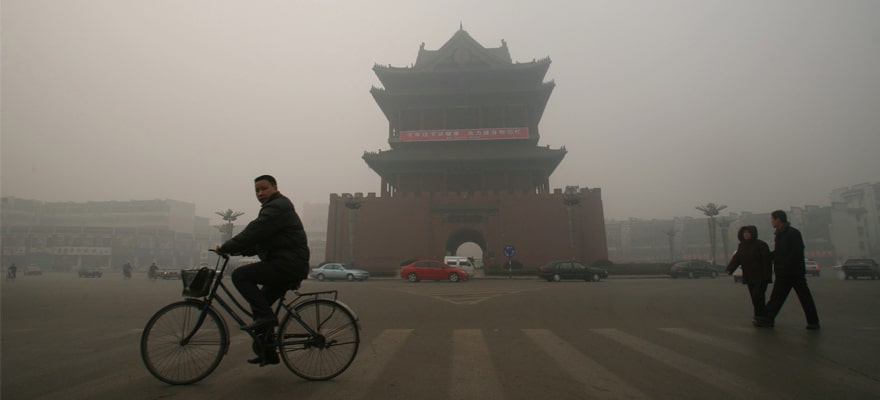China has been at the center of the latest troubles for the industry and Australian brokers in particular. Local authorities have been engaged in an effort to crack down on the brokerage industry for some time now, and the latest batch of news from the country confirms that many firms continue having a difficult time.
As trade negotiations between the US and China are unraveling, the pressure on the country’s currency and foreign exchange reserves is increasing. In response to that, the state is starting to crack down on multiple fronts to stem outflows from the country. Forex brokers have been among the businesses most affected by the latest efforts from local authorities.
Wholly Foreign-Owned Enterprises or WFOEs (also called WOFEs or woofies) are the focus of an effort led by the Chinese State Administration of Foreign Exchange (SAFE).
The amount of the penalty is RMB 1.18 million ($170,000). The grounds for the fine are said to be related to the local capital controls regime for foreign exchange transactions. Individuals and corporations in China have to report to government authorities any foreign exchange transactions in and out of the country.
Chinese persons are allowed to withdraw only up to $15,400 per year and have an annual purchase limit of $50,000 of FX.
ASIC Pressure
Several brokers regulated in Australia have been heavily pressured to stop working with clients from China by the ASIC itself. The Australian regulator has openly communicated to the industry that firms should stop on-boarding and servicing clients from overseas, singling out China and the EU as jurisdictions which will be monitored closely.
With the operations of brokers in China coming into the spotlight on numerous occasions over the years, the hard line of the country’s regulator against the industry is intensifying. While brokers are organizing a coordinated response to the demands from the ASIC, the Chinese government continues to pressure the industry.
The latest move on part of Australian firms Vantage FX and IFGM to return client funds to customers located overseas confirms the pressure on the industry. Companies which are allegedly forced to choose between paying the amount or its employees facing local law enforcement. Two independent sources state that the senior executive of the WOEF of Vantage FX is in custody, however, the company denied that any of VFX employees in China are detained.
Legal Grounds
Local legal experts confirmed to Finance Magnates that Chinese authorities couldn’t apply securities laws to justify their crackdown on the forex and CFDs brokerage industry. However, the country’s Chinese Administration of Foreign Exchange SAFE and the People’s Bank of China (PBoC) have found another way to justify their actions.
Under the strict capital controls, regime enforced in China, companies, and individuals are subject to a set of strict rules when it comes to taking money into and outside of the country. Chinese authorities are using laws governing foreign exchange flows to exert pressure on brokers and force their operations out of the country.
“What authorities are doing is asking brokers ‘have you sent money to China or out of China’?” a senior executive at one of the affected firms shared with Finance Magnates.
Despite all the difficulties which brokers are going through to operate in the country, they usually do leave some form of a digital trace that local law enforcement is actively tracking. Having records of many transactions dating many years back is allowing local authorities to pressure brokers to pay off.
Corruption on State and Local Level
Referring to the latest efforts from Chinese authorities to crack down on the industry, one senior executive at a local broker said that there is no legal basis for the actions of the government. “It is basically a money shaking attempt by government officials,” the executive stated.
Brokers have been consistently pressured over the past several years, facing a multitude of difficulties like rogue IBs that are threatening brokers with Chinese authorities. Actions initiated by government officials on a state and local level are frequently aiming to exert pressure on the firms, with or without any legal basis.
“We don’t have an operation in China as the market has become more aggressive with a lot of rogue IBs and Payments being extremely challenging,” another senior executive shared with Finance Magnates, elaborating on the state of the industry in China.
More Brokers Changing Tactics
As part of the crackdown on the industry, one particularly large player in China, FXCM, was forced to close two education centers. The firm moved its sales and operations to its offices outside of the country.
Commenting to Finance Magnates, the CEO of GKFX, Tunc Akyurt, shared that the whole industry is under pressure. He explained that local authorities are not specifically targeting any single companies. Instead, the efforts of the SAFE and the PBOC are focusing on the whole industry and all players and IBs.
"We have some local partners we have been working closely within China for years. We are aware there is some special attention from the Chinese government on this industry in recent times," Akyurt elaborated.
The company sees this as part of the global trend for more strict regulations for the brokerage industry around the world. The firm is changing its regional strategies to fully comply with the current situation and new regulations in the specific region.
While taking legal action against local authorities is off limits, brokers which are operating from Australia are actively exploring ways to respond to the ASIC’s demands from earlier this spring. Several big players from the land down under have joined together in an effort to resist the pressure the Australian watchdog has been applying over the past couple of months.
One thing is clear - maintaining clients in China is becoming very difficult regardless of a broker’s location and tactics. While local IBs seem to always find their way out of trouble, companies have a choice between bowing to government pressure and leaving the market and continuing high-risk operations.






















